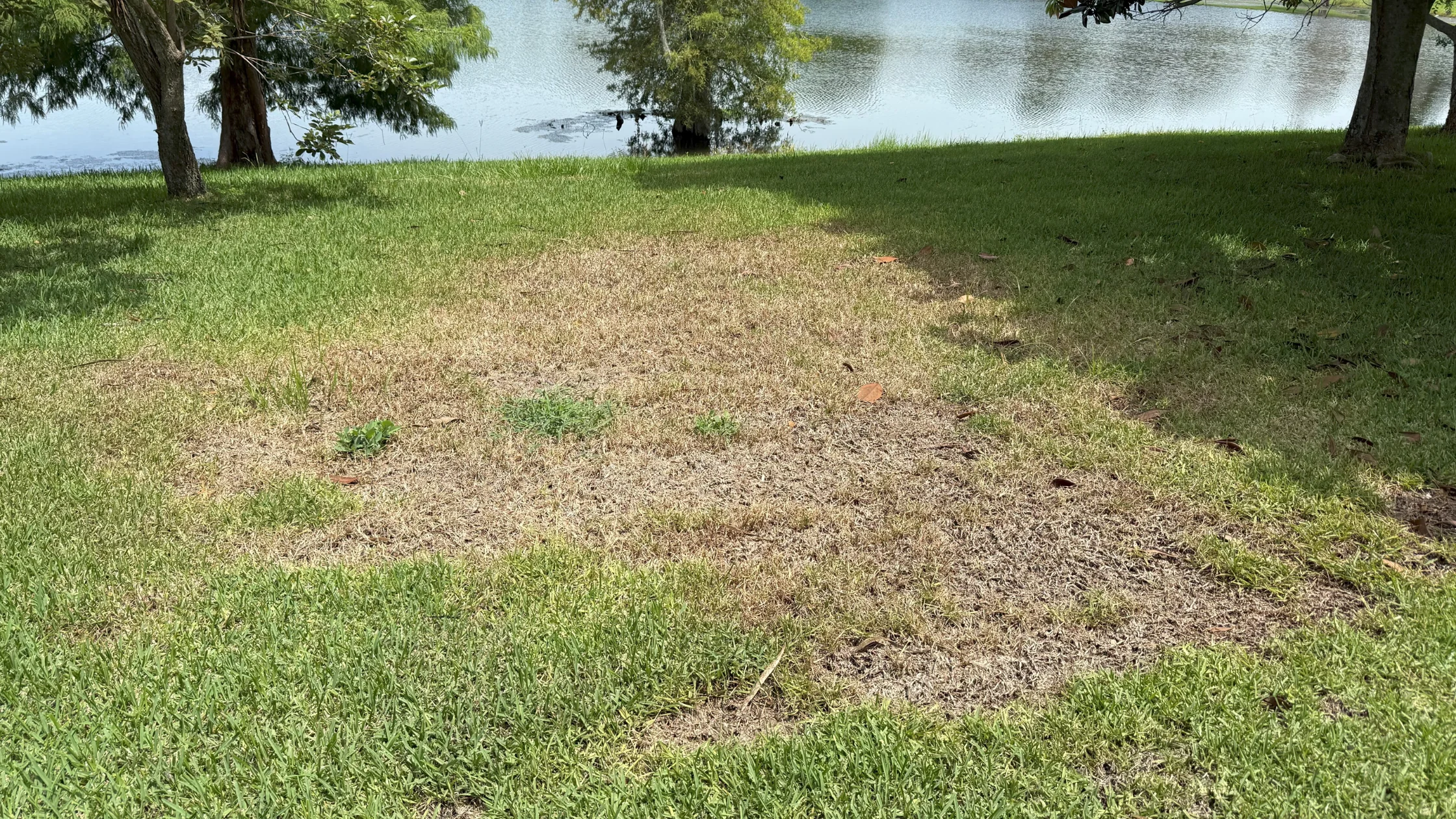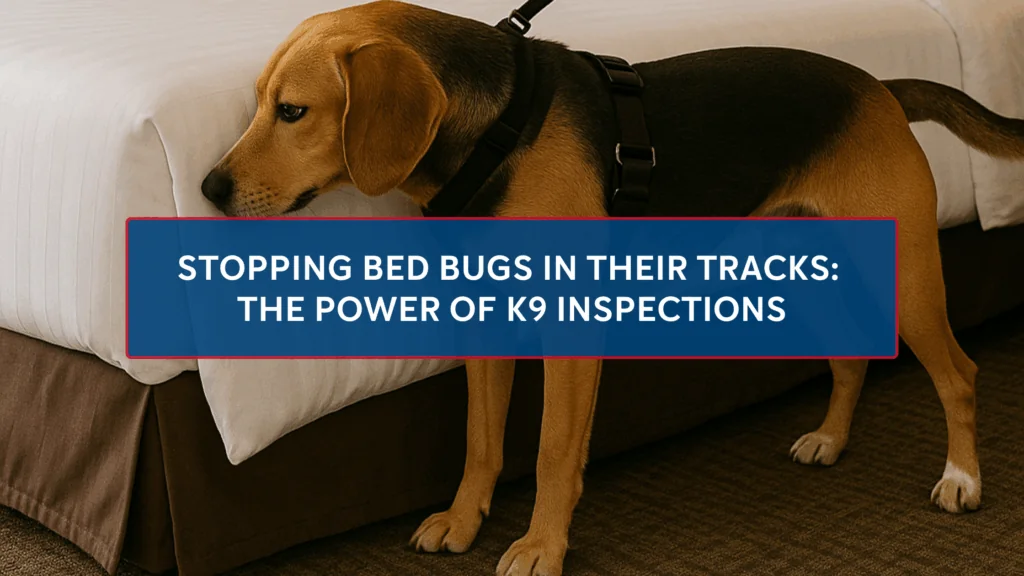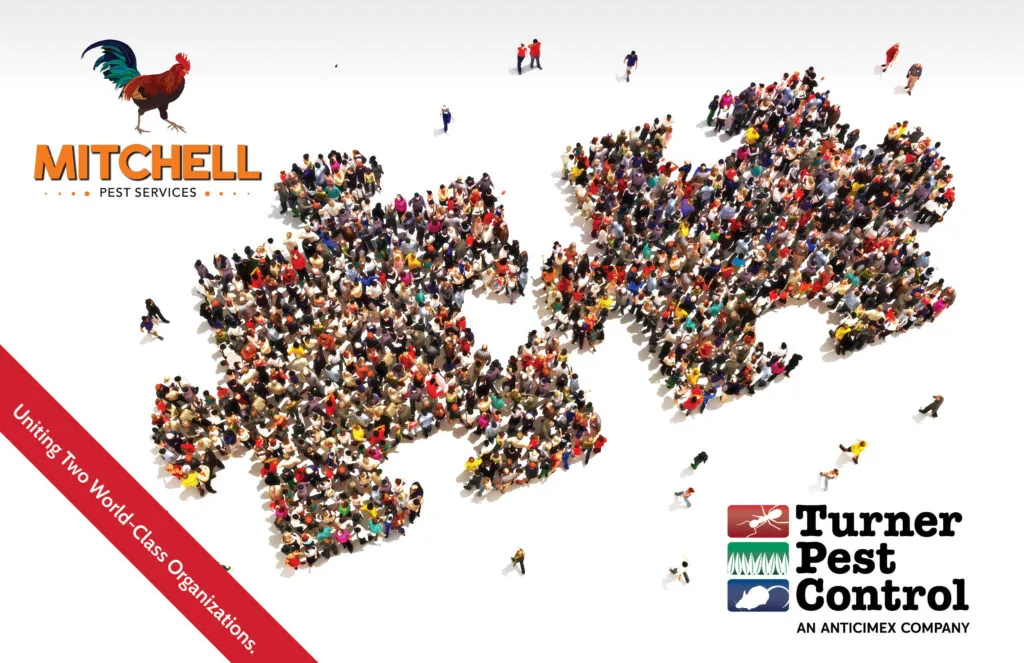
If your lawn has been browning faster than usual, you’re not imagining it.
“2024 was arguably the most challenging year in the past decade for Florida chinch bug management ... Unfortunately, 2025 is shaping up to be worse,” said Adam Dale, Ph.D., an associate professor and turfgrass entomologist with the University of Florida Institute of Food and Agricultural Sciences (UF/IFAS).¹
Why Florida Chinch Bug Control Is Surging in 2025
Dr. Dale mentioned two key factors that are making chinch bug control more difficult this year:
- Weather whiplash — sequences of drought followed by heavy rain likely favored chinch bugs and reduced control success.
- Insecticide resistance — southern chinch bug has a history of developing resistance to heavily used classes like pyrethroids and neonicotinoids; field reports of failures continued into 2025.
Drought & Irrigation: Why Dry Lawns Invite Chinch Bugs
North Florida is significantly behind average rainfall for this time of year. Dry, stressed turf creates ideal conditions for chinch bugs to feed and spread—especially along sunny edges and areas with spotty coverage. Consistent moisture is a core part of prevention and recovery: under-watering or inconsistent irrigation weakens turf, making damage appear faster and control results slower. Practical watering guidance:
Practical watering guidance:
- Target ~¾ inch of water per irrigation zone, per cycle (use cups to measure and adjust run time).
- Water deeply, less often—early morning is best to reduce evaporation and encourage deeper roots.
- Check coverage; dry wedges between heads and along hardscapes are common hot spots.
- Resume your normal schedule after rain, as local watering rules allow.
Quick refresher: the pest & the risk
The southern chinch bug (Blissus insularis) is Florida’s most economically important turf pest. It thrives in St. Augustine grass and can also attack zoysia and bermuda; once populations build, areas can decline rapidly.
According to Dr. Dale, "There are no commercially available St. Augustine grass, zoysia grass, or bermuda grass varieties known to be resistant to the southern chinch bug." Therefore, taking a proactive approach to pest control and lawn care is crucial for every home to prevent the spread of chinch bugs.
What Turner Recommends (No DIY Required)
Here’s how we expertly handle chinch bugs—and what you can expect.
- We find the root of the problem, not just the symptoms. We inspect off-color patches and nearby “hot spots” to confirm live chinch bugs and rule out other possible causes such as drought, disease, or nutrient issues before treatment.
- We stop the insect fast with targeted treatments. We focus applications on active zones (patch edges and hotspots) and expand as needed. Liquids are common; granulars are used when appropriate and watered in. We ensure follow-up visits to verify control and prevent spread.
- We help the lawn bounce back. We look for signs of poor water coverage (and, if you’re home, can ask to briefly run a zone so we can observe), provide mowing-height guidance, address thatch, and support root regrowth. If thatch is ~1″ or more, we recommend aeration.
- We guide you through steps to restore areas where turf is dead. Severe damage may not regrow. We’ll identify areas that need sod replacement and outline the repair plan.
- We monitor through the season. Chinch bugs can be a year-round risk in much of Florida (March–November in North Florida). We schedule routine inspections, especially along sunny edges by pavement, to catch issues early.
- We set real expectations. Recovery isn’t instant. Results build with consistent service and good lawn care; early treatment helps, waiting makes control harder.
- We build a customized treatment plan for your lawn. Every lawn is different. We analyze and treat each lawn individually, then adjust as the turf responds.
Working Together Toward a Healthy Lawn
Chinch bugs remain a serious threat to Florida lawns in 2025. The key to protecting your grass is early, proactive treatment before damage sets in.
Choosing a trusted pest control provider is one of the most important steps in protecting your lawn—and your peace of mind—from chinch bugs. While these pests can be persistent, progress takes partnership. We work closely with our customers, with a shared goal: to protect your family, your lawn, and your investment.
As Dr. Dale put it:
“If you’ve hired a pest control company to manage your lawn, I encourage you to have patience and understanding when it comes to managing the southern chinch bug... Changing companies is not necessarily the solution, as most have access to the same tools.”
Our lawn experts at Turner Pest Control ensure that they educate, adjust, and partner with you every step of the way. Because you deserve a lawn that’s safe, beautiful, and built to last.
Don’t Wait for Chinch Bugs to Take Over Your Lawn
If you're already seeing signs or want to stay ahead of the problem, contact us today to schedule a lawn inspection and a customized treatment plan to keep your yard healthy and chinch bug-free.

References
- Dale, A. G. (2025, August 6). Chinch bug challenges continue in 2025. UF/IFAS Entomology & Nematology Department. https://blogs.ifas.ufl.edu/entnemdept/2025/08/06/chinch-bug-challenges-continue-in-2025/



